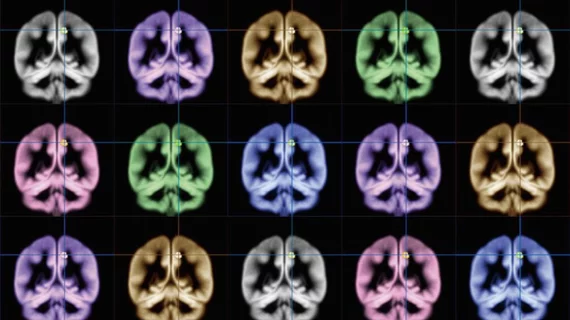Kids take home 3D models of their brain after helping in MRI study
Olivia Mueller is one of 14 kids who have received a 3D-printed model of their own brain as a thank you for participating in an MRI study at the University of Calgary in Alberta, Canada, according to a story from the university.
“Her model brain is her favorite toy,” said Amy Mueller, Olivia’s mom, in the story.
“I can’t believe how big my brain is,” Olivia said, in the same report, “and I think it’s cool that I get to show off my brain to all my friends at school.”
Catherine Lebel, PhD, an assistant professor in radiology at the University of Calgary, started her research in 2013 to investigate how brain maturation relates to cognition and behavior and whether such a relationship varies in children who have been exposed to adversity. Since then, Lebel and her team have imaged 178 children for nearly 500 MRI datasets.
“Children who participate in our MRI study usually get a copy of their brain scan to take home but we wanted to give them something special as a thank you for their dedication, so we have started printing 3D models for them,” Lebel said to the university.
Read the entire story below:

